Related Research Articles
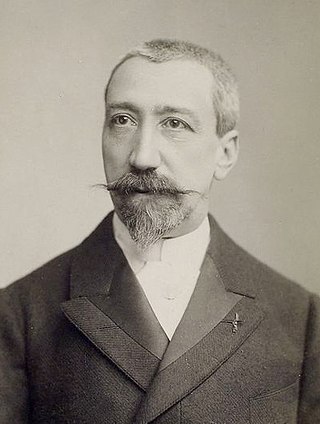
Anatole France was a French poet, journalist, and novelist with several best-sellers. Ironic and skeptical, he was considered in his day the ideal French man of letters. He was a member of the Académie Française, and won the 1921 Nobel Prize in Literature "in recognition of his brilliant literary achievements, characterized as they are by a nobility of style, a profound human sympathy, grace, and a true Gallic temperament".
The Roman Inquisition, formally Suprema Congregatio Sanctae Romanae et Universalis Inquisitionis, was a system of partisan tribunals developed by the Holy See of the Catholic Church, during the second half of the 16th century, responsible for prosecuting individuals accused of a wide array of crimes according to Catholic law and doctrine, relating to Catholic religious life or alternative religious or secular beliefs. It was established in 1542 by the leader of the Catholic Church, Pope Paul III. In the period after the Medieval Inquisition, it was one of three different manifestations of the wider Catholic Inquisition, the other two being the Spanish Inquisition and Portuguese Inquisition.

The Pensées (Thoughts) is a collection of fragments written by the French 17th-century philosopher and mathematician Blaise Pascal. Pascal's religious conversion led him into a life of asceticism, and the Pensées was in many ways his life's work. It represented Pascal's defense of the Christian religion, and the concept of "Pascal's wager" stems from a portion of this work. However as conflicting with the orthodoxy of the Catholic Church it has been forbidden to print or read by the Index Librorum Prohibitorum.

The Index Librorum Prohibitorum was a changing list of publications deemed heretical or contrary to morality by the Sacred Congregation of the Index ; Catholics were forbidden to print or read them, subject to the local bishop. Catholic states could enact laws to adapt or adopt the list and enforce it.
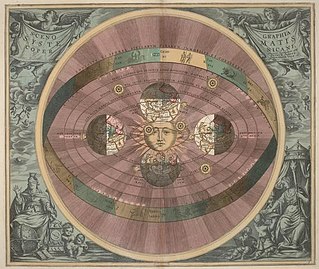
Heliocentrism is a superseded astronomical model in which the Earth and planets revolve around the Sun at the center of the universe. Historically, heliocentrism was opposed to geocentrism, which placed the Earth at the center. The notion that the Earth revolves around the Sun had been proposed as early as the third century BC by Aristarchus of Samos, who had been influenced by a concept presented by Philolaus of Croton. In the 5th century BC the Greek Philosophers Philolaus and Hicetas had the thought on different occasions that the Earth was spherical and revolving around a "mystical" central fire, and that this fire regulated the universe. In medieval Europe, however, Aristarchus' heliocentrism attracted little attention—possibly because of the loss of scientific works of the Hellenistic period.

Giovanni Battista Riccioli, SJ was an Italian astronomer and a Catholic priest in the Jesuit order. He is known, among other things, for his experiments with pendulums and with falling bodies, for his discussion of 126 arguments concerning the motion of the Earth, and for introducing the current scheme of lunar nomenclature. He is also widely known for discovering the first double star. He argued that the rotation of the Earth should reveal itself because on a rotating Earth, the ground moves at different speeds at different times.
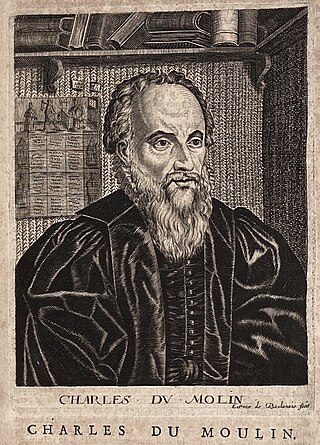
Charles Dumoulin (1500–1566) was a French jurist. He was surnamed by some of his contemporaries the "French Papinian".
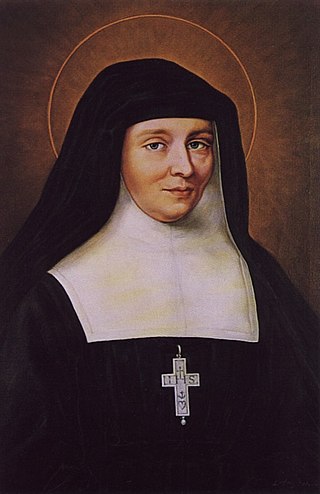
Jane Frances de Chantal, VHM was a French Catholic noble widow and nun who was beatified in 1751 and canonized in 1767. She founded the Order of the Visitation of Holy Mary. The religious order accepted women who were rejected by other orders because of poor health or age.

The Social Contract, originally published as On the Social Contract; or, Principles of Political Right, is a 1762 French-language book by the Genevan philosopher Jean-Jacques Rousseau. The book theorizes about how to establish legitimate authority in a political community, that is, one compatible with individual freedom, in the face of the problems of commercial society, which Rousseau had already identified in his Discourse on Inequality (1755).

Henri Brémond was a French literary scholar and philosopher, Catholic priest, and sometime Jesuit. He was one of the theological modernists.

The Diocese of Vigevano is a Latin diocese of the Catholic Church which lies almost entirely in the Province of Pavia, Lombardy. It has existed since 1530. The diocese is suffragan of the Archdiocese of Milan, having been suffragan of the Archdiocese of Vercelli until 9 April 1578.
Luisa Piccarreta, TOSD, also known as the "Little Daughter of the Divine Will",, was a Catholic mystic and author whose spirituality centred on union with the will of God.

The Gnomon of Saint-Sulpice is an astronomical measurement device located in the Church of Saint-Sulpice in Paris, France. It is a gnomon, a device designed to cast a shadow on the ground in order to determine the position of the sun in the sky. In early modern times, other gnomons were also built in several Italian and French churches in order to better calculate astronomical events. Those churches are Santa Maria del Fiore in Florence, San Petronio in Bologna, and the Church of the Certosa in Rome. These gnomons ultimately fell into disuse with the advent of powerful telescopes.

The relationship between science and the Catholic Church is a widely debated subject. Historically, the Catholic Church has been a patron of sciences. It has been prolific in the foundation and funding of schools, universities, and hospitals, and many clergy have been active in the sciences. Some historians of science such as Pierre Duhem credit medieval Catholic mathematicians and philosophers such as John Buridan, Nicole Oresme, and Roger Bacon as the founders of modern science. Duhem found "the mechanics and physics, of which modern times are justifiably proud, to proceed by an uninterrupted series of scarcely perceptible improvements from doctrines professed in the heart of the medieval schools." Historian John Heilbron says that "The Roman Catholic Church gave more financial and social support to the study of astronomy for over six centuries, from the recovery of ancient learning during the late Middle Ages into the Enlightenment, than any other, and probably all, other Institutions." The conflict thesis and other critiques emphasize the historical or contemporary conflict between the Catholic Church and science, citing, in particular, the trial of Galileo as evidence. For its part, the Catholic Church teaches that science and the Christian faith are complementary, as can be seen from the Catechism of the Catholic Church which states in regards to faith and science:
Though faith is above reason, there can never be any real discrepancy between faith and reason. Since the same God who reveals mysteries and infuses faith has bestowed the light of reason on the human mind, God cannot deny himself, nor can truth ever contradict truth. ... Consequently, methodical research in all branches of knowledge, provided it is carried out in a truly scientific manner and does not override moral laws, can never conflict with the faith, because the things of the world and the things of faith derive from the same God. The humble and persevering investigator of the secrets of nature is being led, as it were, by the hand of God despite himself, for it is God, the conserver of all things, who made them what they are.
Henning Arnisaeus (Arniseus) (1570–1636) was a German physician and moral philosopher. He is now known for his writings on political theory.

Galileo di Vincenzo Bonaiuti de' Galilei, commonly referred to as Galileo Galilei or simply Galileo, was an Italian astronomer, physicist and engineer, sometimes described as a polymath. He was born in the city of Pisa, then part of the Duchy of Florence. Galileo has been called the father of observational astronomy, modern-era classical physics, the scientific method, and modern science.
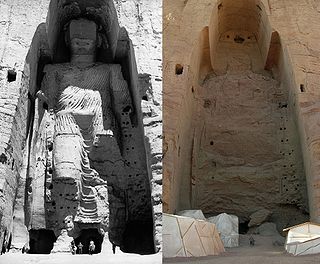
Religious censorship is a form of censorship where freedom of expression is controlled or limited using religious authority or on the basis of the teachings of the religion. This form of censorship has a long history and is practiced in many societies and by many religions. Examples include the Edict of Compiègne, the Index Librorum Prohibitorum and the condemnation of Salman Rushdie's novel The Satanic Verses by Iranian leader Ayatollah Ruhollah Khomeini.
Johann Zanger was a German jurist, professor of law at Wittenberg University.
Magdalena Heymair was a teacher and Lutheran evangelical poet who wrote in the Middle Bavarian dialect. Born a Roman Catholic, she converted to evangelical Lutheranism. In her educational songs for children, she often emphasized the role of women in the Bible. Magdalena Heymair is the first and only woman prior to the 18th century to publish pedagogical writings for elementary teaching. She is also the first woman to have her works listed as heretical in the Index Librorum Prohibitorum (1569).

Annales de philosophie chrétienne was a monthly Catholic journal that existed from 1830 to 1913. It was founded by Augustin Bonnetty.
References
- Coyne, George V. (2005). The Church's Most Recent Attempt to Dispel the Galileo Myth. In McMullin. pp. 340–359.
- Heilbron, John L. (2005). Censorship of Astronomy in Italy after Galileo. In McMullin. pp. 279–322.
- McMullin, Ernan, ed. (2005). The Church and Galileo. Notre Dame, In: University of Notre Dame Press. ISBN 0-268-03483-4.